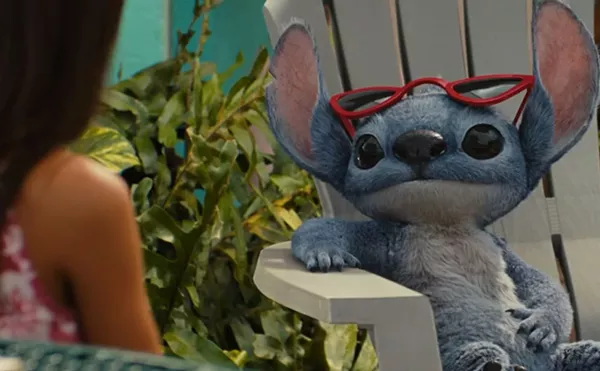
Audio By Carbonatix
[
{
"name": "GPT - Leaderboard - Inline - Content",
"component": "35519556",
"insertPoint": "5th",
"startingPoint": "3",
"requiredCountToDisplay": "3",
"maxInsertions": 100,
"adList": [
{
"adPreset": "LeaderboardInline"
}
]
}
]
Abbas Kiarostami's Taste of Cherry has been popularly hailed as verifying the health of the art film for 1997, which is not to say that it's boring. The best word to describe its pacing and modest theme is "tranquil."
The Iranian-born Kiarostami's easy hand is well suited to this winner of the Palme d'Or at the 1997 Cannes Film Festival, a lengthy rumination on mortality. Its protagonist, known only as Mr. Badii (played by a deadpan Homayon Ershadi), spends all his time driving around Tehran seeking out someone to help him commit suicide. Mr. Badii's motivation is never clearly explained; a deep, abiding bitterness is his only visible emotional drive.
Despite this limited range for identification with the protagonist, Taste of Cherry has its endearing moments for the attentive viewer. As Mr. Badii travels the hills, picking up strangers and propositioning them, he encounters a range of mind-sets that voice humanism and an appreciation for life's simpler pleasures. Kiarostami's vision is humanistic in scope; his camera pulls back for long shots of the rocky hills that capture the rhythms and dynamics of everyday life. The film mostly moves in real time, which contrasts its sometimes esoteric concerns to a larger sense of reality.
Kiarostami has an uncanny hand with his framing. His ardor for Tehran landscapes is beautifully apparent in the film's early going. And solid technical skills hold this work together, as the director has divulged that none of his actors in the film ever met each other. In his two-shot technique of staging the tale's compelling dialogues, the person opposite each passenger was always Kiarostami himself. Still, the bracing narrative of Cherry is nothing if not liltingly intimate.
As Mr. Badii pushes forward to his goal, we are treated to a poetic, even philosophical rendering of the vistas from inside his hole in the ground. And the American jazz cut that complements Kiarostami's final sequence before the credits roll is surprisingly edifying.
Intelligently paced, Taste of Cherry is a meditative gaze into life that turns sweet and poignant before it can get painful.
E-mail comments to letters@metrotimes.com.





